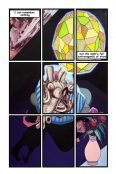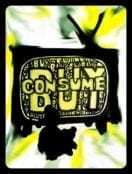[dropcap style=”font-size:100px; color:#992211;”]H[/dropcap]mmm’kay, it’s all about creativity and collaboration. Productivity maximisation and Q3 motivation feedback.
It’s a leverage dynamic, yeah?
Oh. Do. Piss. Off.
A new study establishes that the best combination for incentives and punishment that promotes cooperation are in the form of “First carrot, then stick”. The mathematical proof shows how the combined sequential use of reward (“carrot”) and punishment (“stick”) promotes cooperation in collaborative endeavors, such as protecting social commons and maintaining mutual aid.
Rewards and punishments are the most tried and true approaches when trying to promote cooperation in collaborative endeavors. New research, in terms of evolutionary game theory, is examining a mixed policy of reward and punishment. In contrast, previous studies have only focused on either reward or punishment. As is well known, incentives can be costly and can be adjusted depending on a situation.
In this paper, Sasaki and his colleagues have taken a different approach and investigated what happens when maximizing evolutionary forces towards  cooperation. Through game-theory analysis, the study finds that the best approach is to first reward minor cooperators, and then when a critical mass of cooperators is reached, completely switch to punishing free riders.
cooperation. Through game-theory analysis, the study finds that the best approach is to first reward minor cooperators, and then when a critical mass of cooperators is reached, completely switch to punishing free riders.
How is this applicable to contemporary issues? Take automobiles as an example where this hybrid approach can be implemented. Those who currently drive powerful gas-guzzling vehicles should switch to different engines and fuels that are more environmentally friendly.
Sasaki and his colleagues mathematically show that a “first carrot, then stick” policy can drive cooperation toward a specific goal. “We have optimized the adaptive dynamics under a centralized incentive system. Therefore, fascinating future work would investigate how and when individuals voluntarily delegate the incentive control to a central authority”, says Sasaki.
Source: University of Vienna
Image: Carl Byron Batson. Not to be reproduced without express prior permission

Some of the news that we find inspiring, diverting, wrong or so very right.





















